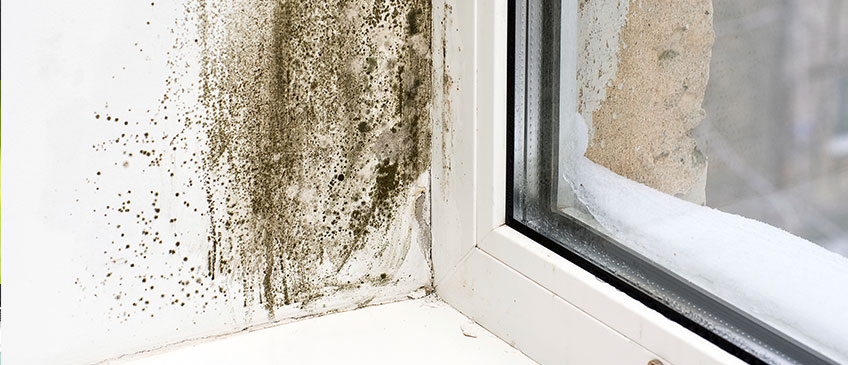One of the biggest pests when it comes to home maintenance isn’t an insect or bug at all. Mold is a problem that can grow outside or inside the home, and can start to sneak up on you quickly when you least expect it. The biggest thing to remember with mold is that it’s associated with moisture, which means any time you’re experiencing a leak or minor flooding has infiltrated the foundation of your home, mold could already be progressing. Here’s what you need to know when it comes to how mold harms you and your home as well as how to adequately guard your home against mold:
Impact of Mold
Mold is one of the most irritating uninvited guests that will affect the environment of your house. According to the Centers for Disease Control and Prevention, mold progression can lead to a variety of health symptoms, ranging from throat irritation and nasal congestion to eye complications, coughing and skin irritation. Mold can be especially hard on anyone living with allergies or asthma, and can exacerbate the condition. This is why taking care of mold not only is essential for home maintenance, but also helps protect the health of you and your family.
Detecting Mold
Mold is often an overlooked household enemy, and it’s easy to miss the signs of it forming. This is because mold can make its way inside from practically anywhere in your home: open airways, vents, windows or air conditioning systems. Moisture is mold’s partner in crime, so be on the lookout for signs of fungus buildup in your attic and basement, both of which are prone to moisture. Sight and smell are the primary ways to detect mold in your house, so if you begin to notice a musty or earthy odor or see signs of discoloration along the walls or ceiling, you’ll know that it’s time to start acting against mold. Remember: The faster you take action against mold, the easier it will be to address the problem.
Preventing Mold
Taking a stand against the fungus before even detecting areas of mold is the best source for preventative action. Everything from properly monitoring your humidity levels to addressing clogged gutters or leaky roofs is essential for defending your house against mold. Here are the main ways to prevent the progression of fungus in your home:
Address Wetness Immediately
If rain found its way into your house or a cracked pipe leaked water all over the basement, you’ll have to dry anything that got wet as fast as possible to avoid mold buildup. The Centers for Disease Control and Prevention state that homeowners should dry out any wet carpet, furniture or bedding within 24 to 48 hours after exposure to water to prevent mold from spreading. Areas or furniture that may be at risk for mold should be cleaned with detergent or water before drying. In severe cases, using bleach to disinfect the mold may be necessary. However, you should never use more than 1 cup of bleach per gallon of water. If any furnishings are beyond being dried out, then discard them. Even little things such as leaving wet clothes lying on the carpet or soggy shoes near the air vent can help spread mold, so always leave anything wet outside or manually dry it off.
“Dampened walls or furniture should be dried within 24 to 48 hours after water exposure.”
Exterior Maintenance
The durability of your gutters and roof has a huge impact on preventing moisture entering your house. Water builds up in clogged gutters whenever there’s a rainstorm, so be sure to install some gutter guards to defend against unwanted debris accumulating, which can lead to a leaky foundation. Inspecting the roof for any signs of wear and tear is essential too, as even the slightest hole can allow moisture to infiltrate your roof, causing mold to quickly spread. Even removing wet leaves around the foundation of your house can help prevent mold from spreading along the exterior walls of your home.
Proper Ventilation
Lastly, failure to properly ventilate the interior of your home can also lead to the accumulation of mold. Whether you’re cooking over the stove or taking a hot shower, be sure that you’re ventilating the air. Using dehumidifiers or air conditioning units to help guard your home against mold can help protection against excess moisture. However, don’t go overboard with these appliances, as they can contribute to moisture buildup if they are overused.

